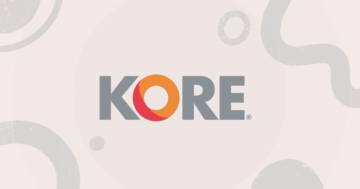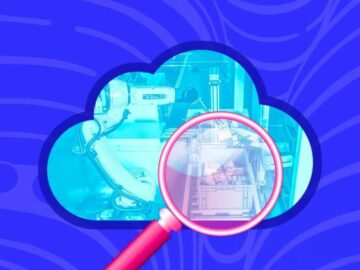
In the wake of the COVID-19 pandemic, manufacturing is roaring back to life, and with it comes a renewed focus on Digital Transformation initiatives. The industry stands on the doorstep of its much-anticipated renaissance, and it’s clear that manufacturing leaders need to not only embrace but accelerate innovation while managing critical processes like increasing capacity while maintaining product quality. Effective collaboration will be key to doing both well, but it’s even more critical as workforces have gone and are still largely remote.
Pandemic Impact
As the virus swept the globe, it became apparent quickly that there would be winners and losers. Many manufacturers were caught off-guard, so to speak. Before manufacturing’s aforementioned reckoning, the industry had already been notorious for its slow adoption of the digital, data-centric mindset that has transformed other industries.
This was on full display as the industry reeled. Even those who had previously embarked on multimillion-dollar Industry 4.0 or IoT initiatives were left without any results to show for their efforts. Unfortunately, when the pandemic hit, the resources to sustain IoT implementations went to the wayside.
Not only did they not have the data they needed to adapt at the moment, but they were haunted by the ghost of their IoT initiatives past. With many manufacturers lumping smart manufacturing into these larger corporate IoT initiatives, the potential value was lost.
Now, this isn’t to say that the pandemic is entirely to blame here. The truth is, pre-pandemic IIoT implementations were already failing at inordinately high rates (81% McKinsey, 2020). This is due to several factors, but primarily the time-consuming and prohibitively expensive nature of implementation and deployment. The result is a large, bulky, difficult-to-implement IoT “initiative” with no actionable use cases to speak of.
Not only do these developments take too long and cost too much, but an ever-growing talent shortage in manufacturing means those across the organization likely don’t have the knowledge or skills at the IT or the OT level to manage the complexities of making it work.
Digital Transformation
The question today is: why invest in digital transformation initiatives at the corporate level when you still don’t have usable data from the factory floor? Smart manufacturing doesn’t require an entire organization dedicated to its success.
For most manufacturers, digital transformation should start with capturing insights from the heart of manufacturing operations- the machine assets that make these products and the people who run them. These assets likely represent the largest capital expense for any manufacturing organization and produce thousands of data points every second. Yet this data is not being captured or analyzed to improve efficiency, stifling continuous improvement. Today’s factories are still consumed by manual processes that lead to massive inefficiencies that affect every component of the organization.
The data, and the insights (and actions) driven from this data, can provide the foundation for manufacturers to grow their business and differentiate themselves competitively. In fact, the inefficiencies that exist at the machine level are probably the lowest hanging fruit to creating massive business impact, not to mention the catalyst for driving much future automation.
Platforms that automate the capture and transformation, or contextualization, enable consumable machine data and insights in minutes. I cannot stress enough how insanely difficult that task actually is in practice for certain types of assets like machine tools. It’s not as simple as standardizing via OPC-UA or MTConnect, like many providers suggest, because only a fraction of machines support those protocols.
Machine Data Infrastructure
As stated earlier, many manufacturers, consultants, and system integrators have attempted to rebuild the machine data infrastructure wheel from scratch with varying degrees of success as a part of larger IoT initiatives. Even when leveraging a horizontal IIoT platform, these development efforts can take months, if not years. And once the mechanism for capturing and contextualizing machine data has been built, it needs to be maintained. Not only is the cost of sustaining these solutions prohibitive, but the lost opportunity and value associated with misallocating resources to develop something that already exists results in a competitive disadvantage for the manufacturer.
Accurate real-time data automatically captured and transformed from machine assets creates a solid base for driving bottom-line value right now and continuously. When combined with visibility and actionability through alerts, analytics, and automation triggered by this data, a 15 to 20% improvement in utilization performance can be realized in months.
Once this foundational piece is in place, value achievement can be accelerated in several directions by integrating this data into other siloed data residing on enterprise factory and organizational systems from product design to production, quality, maintenance, and logistics to drive endless automation and opportunities for remarkable value faster than ever before.
Doing so enables an ecosystem of manufacturers and partners to accelerate value attainment and minimize the risk of initiative failure by optimally aligning the unique skills of the entities participating in the specific IIoT initiative.
IIoT Ecosystem
Today’s IIoT ecosystem consists of manufacturers, machine builders, machine builder distributors, service providers, technology and solution providers, system integrators, consultants, and software providers. Each participant has their own unique capability, expertise, or intellectual property that can be leveraged to drive a successful IIoT initiative. When these resources are misaligned or sub-optimized, IIoT initiatives often come up short in delivering on the promised value proposition, or they fail altogether, as the statistics show.
Where should the manufacturer focus? We believe it is in areas that take advantage of their deep domain expertise. Analytics, including ML and AI algorithms, can be developed and applied both at the edge and in the cloud using analytics technologies. This alignment of skills and technologies creates the optimal formula for the manufacturer’s rapid and continuous value creation.
As shown during the pandemic, manufacturers can’t afford to invest in digital transformation but aren’t sure where to focus their efforts. A sub-optimal model, where companies attempt to focus on or recreate something outside of their core expertise, results at a minimum in wasted time and resources. More likely, the result is a failure and falling behind the competition in the race to differentiate and drive incremental value.
To address this problem and for the digital factory to reach scale, this needs simpler. Successful IIoT initiatives require selecting the right technologies and the proper alignment of the various entities in the ecosystem that participate in the initiative. To optimize rapid value attainment and reduce risk, that alignment should leverage each participant’s unique technology, IP, and domain expertise. The focus should be on instant data transformation, out-of-the-box applications, automation, and integrations into other best-of-breed factory systems.
Pivot, Respond, React
I noted earlier in this article that many manufacturers suffered during these difficult times, and much of that suffering was undoubtedly out of their hands. It would be remiss not to state at this time that we all suffered great losses over this past year, some more than others. But who were the ones who succeeded? Who were the winners? The companies that can pivot, respond, to adapt. And it wasn’t luck; they could do this because they were prepared with the data, the tools, and the mindset to win.
For manufacturers who have invested in large, bulky, difficult-to-implement IoT initiatives: now is a good time to pump the breaks in favor of vertical solutions that can help immediately.
The iron has never been hotter. Are you ready to strike?
- 2020
- Adoption
- ADvantage
- AI
- algorithms
- All
- analytics
- applications
- article
- Assets
- Automation
- builder
- business
- business impact
- Capacity
- capital
- cases
- caught
- Cloud
- collaboration
- Companies
- competition
- component
- COVID-19
- COVID-19 pandemic
- Creating
- data
- delivering
- Design
- develop
- Development
- DID
- digital
- Digital Transformation
- driven
- driving
- ecosystem
- Edge
- Effective
- efficiency
- Enterprise
- factory
- Failure
- Focus
- full
- future
- Ghost
- good
- great
- Grow
- here
- High
- How
- HTTPS
- Impact
- Including
- industries
- industry
- Infrastructure
- Initiative
- Innovation
- insights
- integrations
- intellectual property
- iot
- IP
- IT
- Key
- knowledge
- large
- lead
- Level
- Leverage
- logistics
- Long
- Machines
- Making
- Manufacturer
- manufacturing
- ML
- model
- months
- Opportunity
- Other
- Others
- pandemic
- People
- performance
- Pivot
- platform
- Product
- product design
- Product Quality
- Production
- Products
- property
- quality
- Race
- Rates
- real-time
- reduce
- Renaissance
- Resources
- Results
- Risk
- Run
- Scale
- Short
- Simple
- skills
- smart
- So
- Software
- Solutions
- start
- State
- statistics
- stress
- success
- successful
- support
- system
- Systems
- Talent
- Technologies
- Technology
- The Initiative
- time
- Transformation
- value
- virus
- visibility
- Wheel
- WHO
- win
- Work
- year
- years







